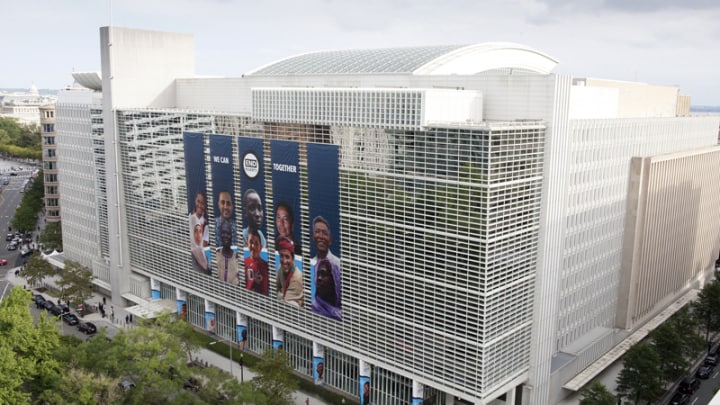Mambury Njie, the Gambian Minister of Finance and Economic Affairs, and Mr. Nathan Belete, the World Bank Country Director, on Monday signed a deal for a US$35 million grant to support the country’s efforts to improve its fiscal management for better public service delivery.
A statement, made available on Monday, said the Fiscal Management Development Project will support the government’s National Development Plan for 2018-2021 by restoring fiscal discipline, improving public sector efficiency, fiscal risk management and reporting, as well as helping the country’s transition to a digital economy.
“The project builds on existing reforms to enhance the financial viability of the telecom sector, as well as transparency and governance framework of the state-owned enterprises,” said Elene Imnadze, the World Bank Resident Representative.
The operation will strengthen the capacity of the Gambia Revenue Authority to collect revenues, including through digital transformation of tax administration.
It will also introduce electronic procurement for more efficient and better-quality public procurement system. In addition, the project will provide incentives and technical assistance to strengthen fiscal risk management, corporate governance and public accountability of the state-owned enterprise sector and pursue critical reforms to enhance financial viability in state-owned telecom assets.
“In the context of the COVID-19 pandemic, this operation becomes even more relevant as it contributes to building capacity to ensure the Government’s business continuity and resilience,” said Maimouna Mbow Fam, Task Team Leader.
The World Bank’s International Development Association (IDA), established in 1960, helps the world’s poorest countries by providing grants and low to zero interest loans for projects and programs that boost economic growth, reduce poverty, and improve poor people’s lives.
IDA is one of the largest sources of assistance for the world’s 76 poorest countries, 39 of which are in Africa. Resources from IDA bring positive change to the 1.6 billion people who live in IDA countries.
Since 1960, IDA has supported development work in 113 countries. Annual commitments have averaged about US$21 billion over the last three years, with about 61 percent going to Africa.





